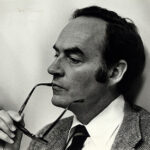Anybody Want Some PCVs? — Part 3
Warren Wiggins would tell me in an interview I did with him in January 1997 (published in RPCV Writers & Readers) that the greatest weakness of the original idea of the Peace Corps was that it didn’t have a constituency beyond “the youth of America.” The Peace Corps, Warren said, “was not an outgrowth of development experience. It didn’t have a constituency in the Congress, the press, or other leadership institutions in the U.S. nor did it have a constituency abroad.”
This proved to be an immediate and immense problem. Kennedy had created a Peace Corps and no one wanted it! There were 25,000 potential PCVs waiting to go do something for America, but no Third World country asked for them.
Getting requests for PCVs was a major problem. “Shriver almost terminated me in those early months,” Warren recalled in his interview. “He would never admit that, and I am not sure if it was conscious. Hell, getting overseas requests was my function and I couldn’t get any.”
Wiggins sent out the word via normal diplomatic channels, but no one replied. Shriver was getting antsy. Kennedy was getting antsy. Then Kennedy decided to send Shriver overseas and seek placements for Volunteers. “My ass was saved by that foreign trip,” said Wiggins, “and I wasn’t even on it!”
On April 22, Shriver began a twenty-six-day venture in personal diplomacy that took him to Ghana, Nigeria, Pakistan, India, Burma, Malaysia, Thailand, and the Philippines. With him were Ed Bayley, Bill Kelly, Franklin Williams, and Harris Wofford.
Who were these guys anyway?
- Edwin R. Bayley was the first director of public information for the Peace Corps, coming from Wisconsin where he had been the executive assistant to Gaylord Nelson, the governor. (Wofford writes in his book, Of Kennedys & Kings, that Bayley always complained Shriver was running the Peace Corps as if it was the last stages of a presidential campaign.) Bayley left the Peace Corps early to become information director for AID.
- Bill Kelly was in charge of contracts. He came to the Peace Corps on May 15, 1961, to organize its contracts office from scratch.
- Franklin Williams was the chief of the division of private organizations, (developing programs through the United Nations) and had great influence within the agency and beyond his title. He had been (since 1958) the assistant attorney general of California, a close friend of Frank Mankiewiez, and had run Kennedy’s black voter registration drive.
 Harris Wofford (on the right) was the first person Shriver called when they put together the Mayflower Hotel Gang to start the Peace Corps. He had worked on the Kennedy campaign with Shriver, would become Kennedy’s civil rights special assistant, and later director of the Ethiopia project and the Peace Corps Representative in Africa.
Harris Wofford (on the right) was the first person Shriver called when they put together the Mayflower Hotel Gang to start the Peace Corps. He had worked on the Kennedy campaign with Shriver, would become Kennedy’s civil rights special assistant, and later director of the Ethiopia project and the Peace Corps Representative in Africa.
Traveling around the world, the group arrived in India and met Prime Minister Nehru. In Ghana they met Kwame Nkrumah. In Tanganyika it was Prime Minister Julius Nyerere. Shriver got permission to send PCVs to India, Ghana, and Tanganyika. They got permission, everyone on the trip agreed, because Sarge charmed the leaders of these three countries. Wiggins would say, “If Shriver had not made that trip, we would not have had a Peace Corps.”
Wofford would write in a memorandum to Kennedy on May 25, 1961, after their trip,
Shriver is a born diplomat. I have never been witness to so successful an international operation. His meetings with government officials, newsmen and private citizens all produced good results for the Peace Corps and U.S. relations. Our ambassador and other overseas officers in every country expressed to me and others their admiration and appreciation of Shriver, their amazement at how much was accomplished in such a short time, and their increased hopes for the Peace Corps in their respective countries.
With three commitments from developing countries the Peace Corps was in the words of Warren Wiggins, “in business.”
•
end of PART THREE
I’m in training here in Belize. Looking forward to all of it. Hoping COVID doesn’t interfere.
Best of luck to you! Welcome aboard.
From Wikipedia –
(After Peace Corps) Shriver founded numerous social programs and organizations, including –
Head Start,
VISTA,
Job Corps,
Community Action,
Upward Bound,
Foster Grandparents,
Legal Services,
the National Clearinghouse for Legal Services (now the Shriver Center),
Indian and Migrant Opportunities and
Neighborhood Health Services
and He was active in the Special Olympics, which was founded in 1968 by his wife Eunice.
I love Sargent Shriver!